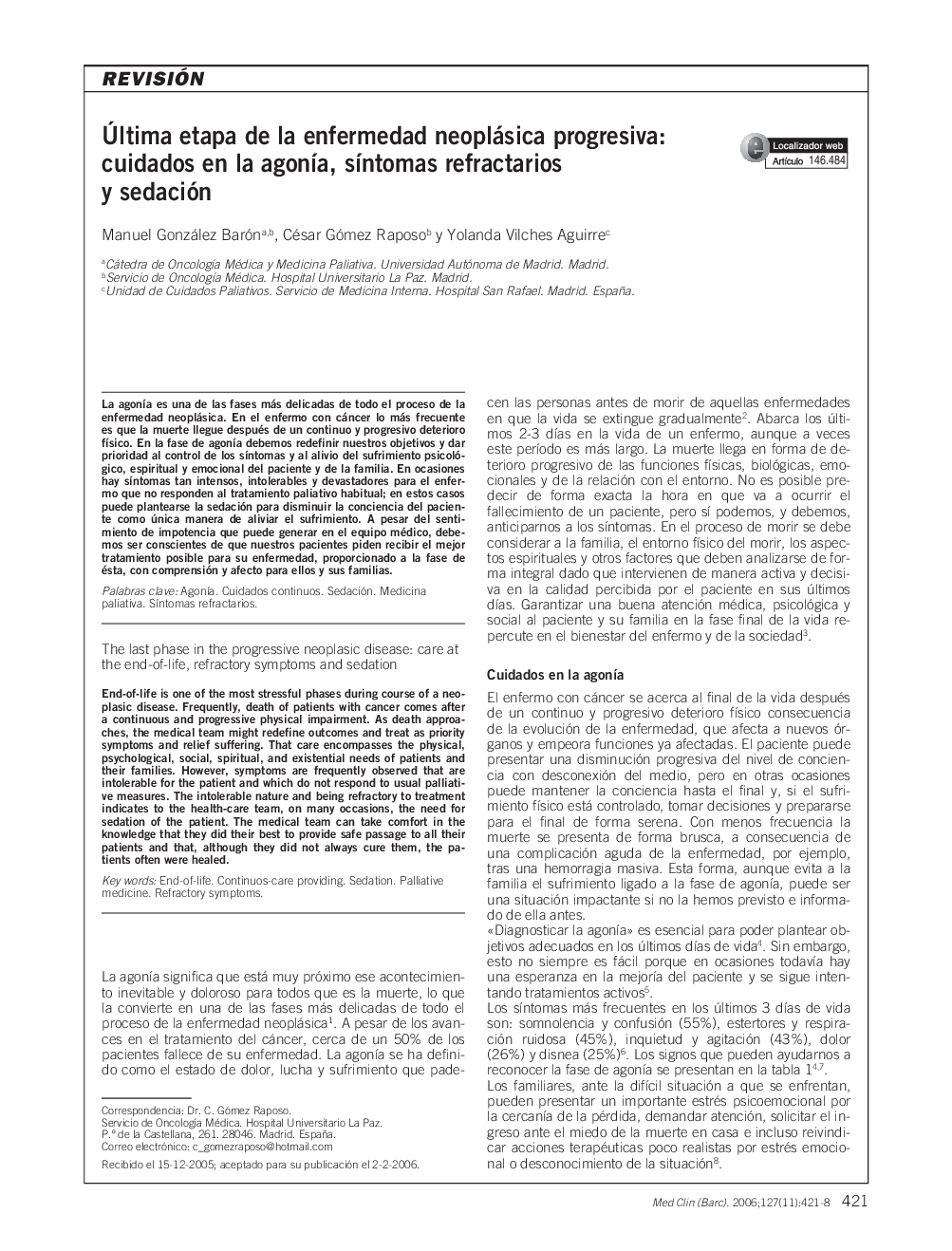| کد مقاله | کد نشریه | سال انتشار | مقاله انگلیسی | نسخه تمام متن |
|---|---|---|---|---|
| 3803026 | 1244864 | 2006 | 8 صفحه PDF | دانلود رایگان |

La agonÃa es una de las fases más delicadas de todo el proceso de la enfermedad neoplásica. En el enfermo con cáncer lo más frecuente es que la muerte llegue después de un continuo y progresivo deterioro fÃsico. En la fase de agonÃa debemos redefinir nuestros objetivos y dar prioridad al control de los sÃntomas y al alivio del sufrimiento psicológico, espiritual y emocional del paciente y de la familia. En ocasiones hay sÃntomas tan intensos, intolerables y devastadores para el enfermo que no responden al tratamiento paliativo habitual; en estos casos puede plantearse la sedación para disminuir la conciencia del paciente como única manera de aliviar el sufrimiento. A pesar del sentimiento de impotencia que puede generar en el equipo médico, debemos ser conscientes de que nuestros pacientes piden recibir el mejor tratamiento posible para su enfermedad, proporcionado a la fase de ésta, con comprensión y afecto para ellos y sus familias.
End-of-life is one of the most stressful phases during course of a neoplasic disease. Frequently, death of patients with cancer comes after a continuous and progressive physical impairment. As death approaches, the medical team might redefine outcomes and treat as priority symptoms and relief suffering. That care encompasses the physical, psychological, social, spiritual, and existential needs of patients and their families. However, symptoms are frequently observed that are intolerable for the patient and which do not respond to usual palliative measures. The intolerable nature and being refractory to treatment indicates to the health-care team, on many occasions, the need for sedation of the patient. The medical team can take comfort in the knowledge that they did their best to provide safe passage to all their patients and that, although they did not always cure them, the patients often were healed.
Journal: Medicina ClÃnica - Volume 127, Issue 11, September 2006, Pages 421-428